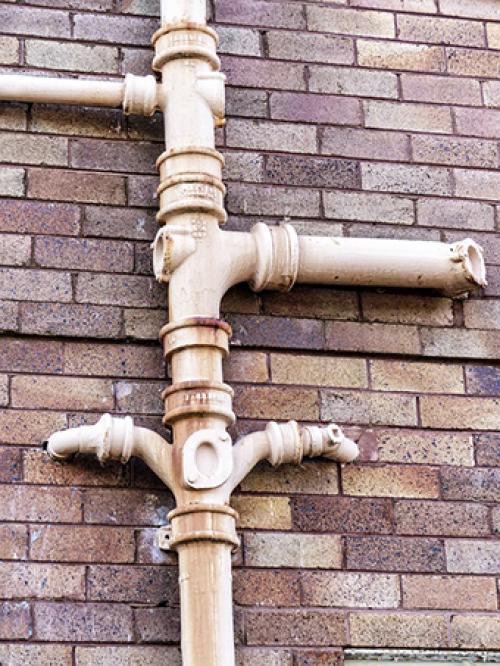I believe that HECM, Home Equity Conversion Mortgage, can be a great solution for helping seniors gain financial independence. If you are a Southern California resident who is interested in a reverse mortgage, please feel free to contact me if you would like more information.
HECM… Home Equity Conversion Mortgage (Reverse Mortgage)
A Reverse Mortgage to PURCHASE a property? How does it work?
A reverse mortgage purchase allows seniors age 62 or older to buy a new home with HECM loan proceeds. The primary benefit to the senior is that the transaction only involves one set of closing costs versus buying a home and obtaining a reverse mortgage thereafter, which would incur two complete sets of closing costs. Created by the Housing and Economic Recovery Act of 2008, this program became live on January 1, 2009. Qualified seniors must conform to all HECM requirements, all of the basic rules apply in addition to some new rules and regulations.
What Are The Basics?
- Can purchase existing 1 to 4-unit property
- The property must serve as the principal residence
- Once the HECM purchase is complete, no additional liens are permitted (Lender in 1st position, HUD in silent 2nd)
- Must provide monetary investment at closing from an allowable funding source, see below for details
- Must occupy property within 60 days of closing
- Newly constructed properties must have a certificate of occupancy issued by the time the Home Equity Conversion Mortgage purchase loan is insured by FHA ('endorsed').
There Are Some Differences Between A HECM For Purchase And A Traditional HECM For Seniors.
The major differences concern the property types that are eligible, the cash required at closing, the involvement of a Realtor in the loan process, the recommendation of a professional home inspection, and certain closing costs.

Eligible Properties
Same as federally-insured reverse mortgages or Home Equity Conversion Mortgage loans.
Ineligible Properties
- Cooperative units
- Manufactured Housing
- Bed and breakfast properties, boarding houses
What Is The Monetary Investment Requirement?
At closing, HECM borrowers must provide a monetary investment that will be applied to satisfy the difference between the HECM principal limit and the sales price for the property, plus any HECM loan-related fees that are not financed or offset by other allowable FHA funding sources. In other words, the proceeds from the reverse mortgage and any funds from the sale of the old property (or from the borrower’s savings) must be enough to purchase the new property outright.
The difference between the principal limit and sales price for the property also includes any HECM loan-related fees that are not financed or offset by other allowable funding sources. Borrowers may provide larger investment amounts to retain a portion of HECM proceeds for future draws.
What Are Allowable Funding Sources?
- Their own money or money obtained from the sale of assets.
- Credits (contributions) up to six percent of the sales price from an interested party, such as a seller, builder, developer, real estate agent, mortgagee, third-party originator, other parties, or a combination of parties with an interest in the transaction.
- Withdrawals from the borrower’s savings or retirement account are acceptable.
Lenders will be required to verify the source of all funds prior to closing. A verification of deposit, along with the most recent bank statement, may be used to verify savings and checking accounts. If there is a large increase in an account, or the account was opened recently, the lender must obtain a credible explanation of the source of those funds. Such documentation must be provided in the FHA case binder. Failure to provide the necessary documentation may result in a notice of rejection and delay of endorsement.
What Funding Sources Are Ineligible?
- Loan discount points
- Interest rate buydowns
- Closing cost assistance
- Builder incentives
- Credit card advances
- Secured or non-secured loans from another asset (car, home equity)
Borrowers may not obtain a bridge loan (also known as gap financing) or engage in other interim financing methods to meet the monetary investment requirement or payment of closing costs needed to complete the purchase transaction. This restriction includes subordinate liens, personal loans, cash withdrawals from credit cards, seller financing and any other lending commitment that cannot be satisfied at closing.
What Is The Role Of Real Estate Agent?
Senior should consider a written agreement – you should include contingencies for the sale of the senior’s previous home, the home inspection, etc.
Selecting A Home For Purchase & Getting An Inspection
All seniors are strongly encouraged by HUD to get a home inspection from a licensed professional home inspector (This is suggested but not required)
- Evaluates the physical condition: structure, construction, and mechanical systems
- Identifies items that need to be repaired or replaced prior to the scheduled closing date
- Estimates the remaining useful life of the major systems, equipment, structure, and finishes
- Buyers should be at the inspection to ask questions about the condition and maintenance

Required Repairs
- Health and safety or structural integrity issues
- Must be completed prior to closing by the seller
- Include in a purchase agreement
- Buyer cannot put any money into repairs before they own the home
Writing An Offer
- Must state offer contingent on a satisfactory inspection conducted by a qualified inspector
- The borrower may want an attorney to review – increases costs but may be worth it
- The client may cancel the transaction at any time prior to closing but this could affect earnest money deposit
Closing Costs
Standard HECM closing costs plus:
- Recordation fees
- Transfer taxes
- Varies from state-to-state
Other Things You Should Know:
- There is no three day right of rescission, unlike a traditional HECM. The three-day right of rescission period is not applicable to HECM for Purchase transactions. Therefore, all initial advances may be disbursed on the day of closing by the settlement agent. However, FHA encourages lenders to seek their counsel’s opinion to assure compliance with Federal or State laws.
- Seller concessions are not applicable to reverse mortgages.
- Existing HECM borrowers who participate in a HECM for Purchase transaction are ineligible for a reduction of the upfront MIP and lenders must enter the transaction into FHA Connection as a new HECM.
- HUD-approved housing counseling agencies that have been approved to provide reverse mortgage counseling, must counsel those who anticipate using the HECM for Purchase option on all topics covered in this Mortgagee Letter and other HUD requirements and issuances.
- Lenders are required to ensure the property, when used as collateral for the HECM, meets the following property requirements:
- 1) It is the borrower’s principal residence;
- 2) Construction is complete and a certificate of occupancy or its equivalent has been issued by the time the loan is insured by FHA ('endorsement') or by the lender's deadline, and
- 3) Any construction loan financing for the property, which will serve as the collateral for the HECM loan, is satisfied and the HECM liens will be in a first and second lien position and, at the time of closing, no other liens against the property exist.
Property Flipping
To avoid cases of property flipping, lenders must take steps to ensure that:
- Only current owners of record may sell properties that will be financed using FHA-insured mortgages;
- Any resale of a property may not occur 90 or fewer days from the last sale to be eligible for FHA financing; and
- For resales that occur between 91 and 180 days where the new sales price exceeds 100% of the previous sales price, FHA will require additional documentation validating the property’s value.
Property Flipping Scams
If a lender suspects a senior has become a victim to a property flipping scam, the Processing and Underwriting Division of the local HOC should be contacted.
Complaints may be reported to HUD’s Inspector General Hotline at:
HUD Office of Inspector General Hotline, GFI
451 7th Street, SW
Washington, DC 20410
Toll-free: 1-800-347-3735
TDD: (202) 708-2451
For more accurate and timely information regarding reverse mortgages please contact me here.
